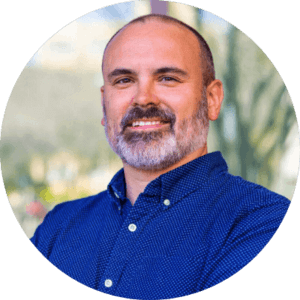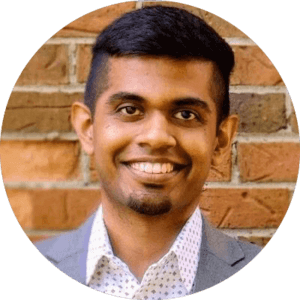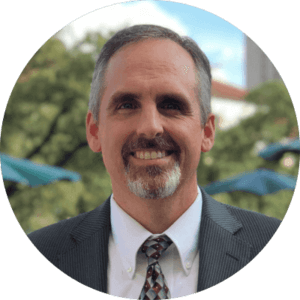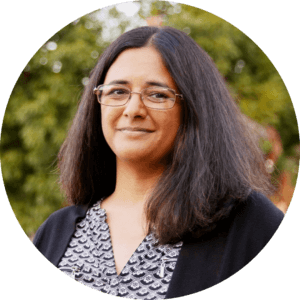Annual Report
Our media landscape is confronting escalating challenges – from the widespread increase in mis- and disinformation, to collapsing journalism funding models, to the unknown impacts of social media and Al.
The Center for Media Engagement is focused on envisioning a more vibrant future.
We are a first-of-its-kind center that works to understand and improve the information ecosystem for the benefit of democracy.
DEAR FRIENDS AND SUPPORTERS,
Whew! There’s little more to say at the end of a tumultuous election year that saw new forms of media engagement catapult to the forefront of campaigning and public attention. From podcasts, to new social platforms, to generative AI, the year has been an eventful one. At the Center for Media Engagement, we have been busy working to understand these patterns and to improve the information ecosystem for the benefit of democracy.
We addressed the unfolding context by partnering with newsrooms in battleground states to provide the public with information about the election and by investigating the threats and opportunities coming from the use of generative AI during elections in the U.S. and beyond. We examined what scientists and journalists think about scientific sourcing with the hope of improving science media coverage. We outlined an ethics framework for researching digital platforms. We produced new media ethics case studies on contemporary topics such as how to cover the war in Ukraine in an objective way that encourages students to think about ethically complex decisions.
In the year to come, we are focused on identifying ways to build community and connection, improving trust and understanding, and sharing what we learn beyond the walls of academia. Projects in progress ask:
- How does the public reach conclusions about media bias?
- How can generative AI be used effectively by journalists?
- How can games be used to correct misperceptions about political partisans?
- How can AI improve discussion quality?
- How does an effort to connect journalists and scientists on deadline affect reporters, media coverage, and audiences?
- How do local broadcast media talk about election integrity, and with what effect?
- How can we better inform the public about circulating misinformation?
- How can journalists better cover heated contemporary issues?
We look forward to sharing what we are learning!
Most importantly, let me take this opportunity to thank you. On behalf of everyone at the Center for Media Engagement, we appreciate your engagement. From learning about our findings to sharing our results to implementing changes based on what we discovered, you make our work meaningful. Please consider this an invitation to reach out – we always welcome feedback!
We are grateful to our funders and supporters, especially the John S. and James L. Knight Foundation, whose new multi-year grant is supercharging our work to understand and build connections between people and the institutions that serve them.
As 2024 comes to a close, we hope you are able to take a break and then join us in returning for a new year focused on making a difference. With all the best wishes,

Natalie (Talia) Jomini Stroud, Ph.D.
Director, Center for Media Engagement
2024
By The Numbers
285+ MEDIA MENTIONS
showcasing our expertise
60+ SPEAKING ENGAGEMENTS
featuring our team members
25 SCHOLARLY ARTICLES
published in journals
15 OP-ED & ANALYSIS PIECES
written for media, trade, & policy orgs
17 NEWSROOM PARTNERS
collaborated with us on research
9 EVENTS & WORKSHOPS
hosted or co-hosted by our center
10 PUBLIC-FACING REPORTS
published by our center
8 CASE STUDIES
released for free educational use
2024 Key
Outcomes
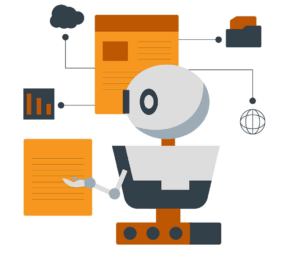
Understanding the Role of AI in the U.S. 2024 Elections and Beyond
Interviews with experts in the digital politics space shed light on the major trends and common concerns regarding AI’s role in elections. Taken together, the use of generative AI (GenAI) tools for collecting large swaths of data about voters, speeding data analysis of content toward effective hyper-targeting of voters, and interactively interfacing with voters in voices that sound (almost) human pose great concerns for democracy. While certain uses of GenAI have democratic potential, there is serious concern that a lack of regulation and consistent industry standards will allow malevolent actors to develop and use these tools without legal, technical, or ethical guardrails. Most importantly, the rapid advancement of GenAI underscores the need to treat new technologies not as separate policy areas, but as something to be integrated into all policy areas.
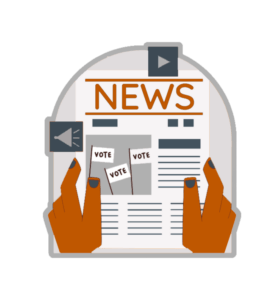
Battleground Newsrooms Face Election Coverage Challenges
In the lead-up to the 2024 election, we spoke to news editors in battleground areas to learn more about their strategies for navigating election coverage. The general sentiment among the editors was that fact-checking is critical, but limited resources, coupled with an overwhelming amount of misinformation, mean that it’s not a priority for all newsrooms. When it comes to post-election coverage, there was consensus that high-quality reporting is crucial. Views varied, however, on newsrooms’ role and whether they should deal with public reactions. Though many editors had reservations, there was general optimism about the benefits of using AI in newsrooms for tasks such as analyzing transcripts, captioning and organizing photos, generating headlines, and summarizing content. There was overall concern about navigating election reporting while dealing with limited resources. Despite this, all news outlets were committed to providing quality coverage.

A Vermont Platform Fosters Civic Engagement and Builds Community
Can social media bring local communities together? In collaboration with New_ Public, we found that Vermont platform Front Porch Forum presents a good case for how it can be done successfully. Front Porch Forum is a network of town-specific, proactively moderated online forums that help neighbors connect with each other. We examined how Front Porch Forum members perceive the platform’s performance on signals of healthy, publicly oriented platform design. Members of Front Porch Forum consider it useful, valuable, informative, relevant, and civic-minded, especially compared to other dominant social platforms. Part of the platform’s magic may come from the moderators’ touch in balancing positive and negative comments.

Generative Artificial Intelligence is Playing a Role in Elections
Generative AI (GenAI) has emerged as a transformative force in elections playing out across the world. In a series of reports, we examined the potential impacts of GenAI on key democratic processes in the U.S., Europe, India, Mexico, and South Africa. These insights are critical to groups working to sustain and advance democracies in the face of constant transformation of the digital environment and associated communication processes. Emerging trends developing in the U.S. include extensions of mis- and disinformation strategies, manipulation of information related to electoral processes, leveraging of trusted messengers and messages, erosion of public trust in institutions, and taking advantage of Big Tech.

Mixed Responses to Bylines from Journalists Who Share Readers’ Race or Ethnicity
An exploration of how different racial and ethnic groups respond to bylines from journalists who share their race or ethnicity yielded mixed findings. In general, the race or ethnicity of the journalist did not affect whether people felt represented in the media. When it came to a person’s likelihood of reading a news story, results were mixed. In some cases, Black news consumers were more likely to read an article by a Black journalist. Hispanic news consumers, in some cases, were less likely to read an article written by a Hispanic journalist. In follow-up studies, however, this result didn’t hold. When journalists’ race, as inferred from a byline, affects audience engagement depends on the context. The findings don’t offer clear suggestions for newsrooms – what they do suggest is that more research is needed to address the influence of racial and ethnic diversity as presented in bylines and to see how journalists’ race or ethnicity affects audience behavior.
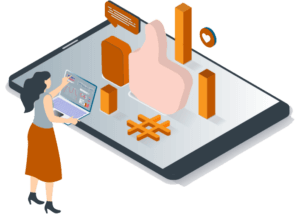
Better Guidelines Needed for Platform Research Ethics
What does it mean to conduct “ethical research” in the context of studying digital platforms? We lay out the state of current platform studies ethics, the challenges of building ethical frameworks for this type of research, and potential solutions as proposed by researchers studying digital platforms and research ethics. Interviews with academic researchers emphasize the need for building consensus, ideally through coalitions, and for supporting research infrastructure that prioritizes clear and transparent ethical practices. What is clear from the findings is that researchers, platform users, companies, politicians, and funders must work together to support ethical research practices that are flexible and yet guided by the shared principles of research for the public and minimizing user harm.
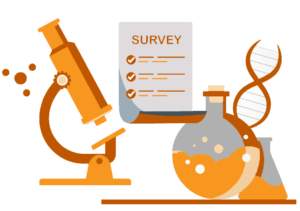
Scientist Training and Journalist Community-Building Can Improve Science Communication
As part of a series of reports produced in partnership with SciLine, we explored what scientists and journalists thought about each other, public engagement with science, and SciLine’s expert matching service. The findings reveal that journalists only feel moderately supported in their science reporting efforts, indicating opportunities to develop services that build networks and community among journalists. Scientists and journalists generally trust each other, although journalists’ feelings of trust for scientists tend to be higher. Both groups had similar views on which stakeholders and which goals are most important for science communication. They also strongly agree that scientists should receive training on becoming better communicators.

The center’s interdisciplinary expertise is focused on initiatives including:
Center
Initiatives
Trust in Media
Sharing guidance on the reporting process from development to delivery, helping newsrooms connect with local communities, and providing insights into tools, practices, and strategies that benefit local communities and newsrooms’ bottom lines.
Misinformation and Disinformation
Examining the use of social media, Generative Artificial Intelligence, and other digital tools to manipulate public opinion and curb the spread of misinformation and disinformation.
Bridging Divides
Developing a new approach to tackle the swiftly growing political and social divisions in our society. Ongoing research in the practice of connective democracy unites newsrooms, scholars, platforms, and public policy entities toward bridging gaps in our society.
Impact
Highlights
SHARED EXPERTISE
Our team reached audiences around the globe at conferences and invited speaking engagements hosted by organizations such as:
- American Political Science Association
- Asian American Journalists Association
- Association for Education in Journalism and Mass Communication
- Association of Internet Researchers
- Center for the Study of Democratic Politics
- Information Society Project
- International Communication Association
- Knight-Georgetown Institute
- League of Women Voters
- NALEO Educational Fund
- National Academy of Sciences
- NYU’s Center for Social Media and Politics
- Plurality Institute
- Public Affairs Council
- Stanford Cyber Policy Center
- USC Center on Public Diplomacy
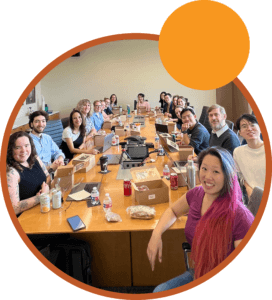
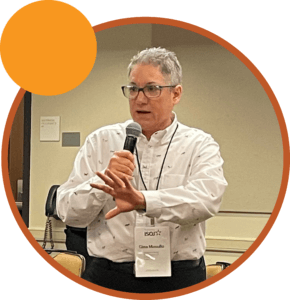
PRESS
Our expertise was featured by a variety of local, national, and international trade publications and media outlets including:
- ABC News
- American Press Institute
- Bloomberg
- CNN
- Forbes
- NBC News
- Newsweek
- Nieman Lab
- PolitiFact
- POLITICO
- Poynter
- Reuters
- The Associated Press
- The New York Times
- The Wall Street Journal
- The Washington Post
- TIME
- WIRED
OUTREACH AND COLLABORATION
We helped journalists, academics, and policymakers connect with our work and understand how to put our findings into practice through center workshops and discussions:
- Computational social science speaker series
- Discussion with members of the European Parliament
- Cross-organizational workshop to create a public archive of social media handles for 2024 candidates
- Journalist and academic workshops on covering contemporary topics
We partnered with 17 newsrooms and 143 journalists and worked with organizations including the Centre for International Governance Innovation (CIGI), Front Porch Forum, the International News Media Association, the Media and Democracy Data Cooperative, Tech Policy Press, and The Lawfare Institute.
RESEARCH REACH
Our research content received more than 380,000 views on our website
Our case studies were used by 148 universities and colleges, 115 secondary schools, and 37 learning platforms this year alone.
We collaborated with New_ Public on research that examines how members of Vermont’s Front Porch Forum perceive the platform and how it compares to other platforms.
We collaborated with the NYU Stern Center for Business and Human Rights to shed light on how political propagandists are exploiting the features of encrypted messaging platforms to manipulate voters.


